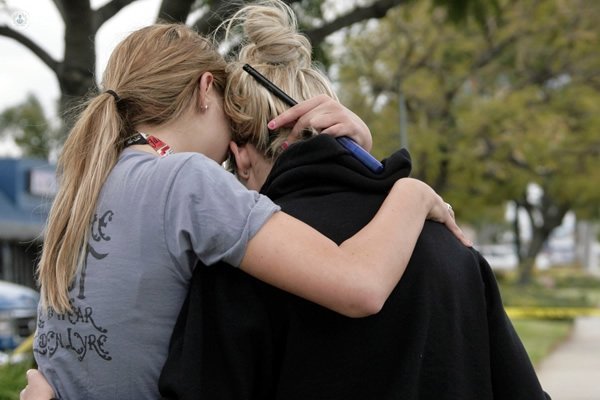Therapeutic support for stages of grief
Written by:
 How can we face the death of a close family member or stranger?
How can we face the death of a close family member or stranger?
The death of a family member is always a painful experience regardless of the circumstances in which it occurs. It involves redefining the identity of the suffering and the spaces left by the deceased in his life.
Overall, the best way to face death or self from life, enjoying and creating full and satisfying relationships with our environment and those who make. Thus, the processes of terminal illness and / or old age give both those affected and their environment long enough to redirect, redefine and refocus the relationships and emotions that have been established with him.
Thus, preparing for the death of a loved one is a process that would be advisable to start before the death. That is, the awareness of the upcoming loss and the possibility of a proper farewell have a great importance facing the development of an appropriate process of mourning. Thus, in those cases in which death occurs unexpectedly, the individual will suffer more difficult to perform this process properly, still much higher level of suffering.
Are there stages in this thought process?
There are many descriptions made of the grieving process following the death of a loved one and therefore the stages that cross the mourners. Indeed, you can set various phases do not necessarily determine a stipulated order.
The duel, understood as an evolutionary process, leading to who crosses to accept their loss, to redefine their identity and way of life without the deceased. Therefore, the road is heavily influenced by the various factors that characterize and define the daily life of suffering.
But from a clinical perspective, it is often common to see stages of disorientation, confusion and anger staff. Subsequently, the suffering goes on a search for solutions and coping with the reality that already implies the beginning of the acceptance of loss. It should be noted that in no case this last phase implies the absence of sadness, grief, much less the suffering begins to forget the deceased. It only implies that the sufferer may have taken the loss and continue with your life.
Is it good to have a constant reminder of the deceased as keep his clothes?
You do not want the suffering cling to any object as a way to remember your loved one. They must learn to remember and loving them as a part of itself, without reduce it to any object. However, in the initial stages of the grieving process it is common for these linkages occur, but should be fading with the passage of time.
In any case, as individual and subjective processes that are experts in psychology does not consider it appropriate to ask whether or linking to objects after a death is not positive. However, if these linkages affect the evolution of the grieving process, they must be addressed.
What is the role of the therapist in these cases?
The grieving process should not be considered a priori a pathological process that requires a particular treatment. Usually the doctor pattern a point symptomatic drug treatment, when the level of suffering blocks the subject's ability to deal with this phase.
The therapist can and should provide therapeutic support in these times. This would be to listen and facilitate emotional expression of suffering, providing guidance and advice on the steps to achieve a healthy grieving process. Similarly, you should also evaluate and analyze the start of a match against disease if it should start a therapeutic process.


